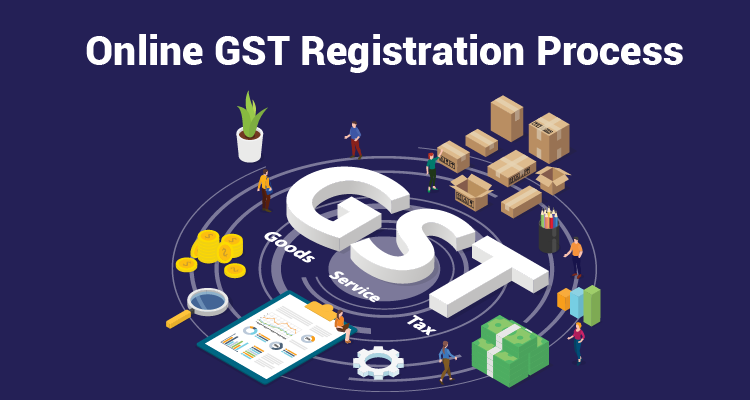Why Businesses Like the very best GST Registration Services in Singapore
Why Businesses Like the very best GST Registration Services in Singapore
Blog Article
From Beginning To End: The Ultimate Roadmap to GST Enrollment for Services Seeking Financial Security
Browsing the intricacies of Goods and Services Tax (GST) registration is a critical action for organizations making every effort for economic security. Breaking down the roadmap into manageable actions can streamline the enrollment trip for organizations looking to boost their financial standing.
Recognizing GST Essentials
Looking into the essential principles of Product and Solutions Tax Obligation (GST) is necessary for gaining a comprehensive understanding of its ramifications on companies and the economic situation. GST is a value-added tax obligation imposed on the majority of goods and services for residential consumption. It has actually changed multiple indirect tax obligations that existed in the pre-GST era, simplifying the tax obligation structure and enhancing ease of doing company in India. Under the GST system, both solutions and products are exhausted at a details rate, which is figured out based on their category. Companies are required to sign up for GST if their yearly turnover exceeds the threshold limitation established by the government. Input Tax Credit (ITC) is a substantial feature of GST, enabling businesses to declare credit rating for tax obligations paid on inputs, decreasing the total tax problem. Understanding the essentials of GST is essential for organizations to comply with tax obligation guidelines, manage their financial resources successfully, and add to the country's financial development by taking part in a clear tax obligation system.
Eligibility Standards for Enrollment
To register for GST, organizations have to satisfy specific qualification criteria established by the federal government. The key qualification requirement is that any type of organization included in the supply of products or services with an annual accumulation turn over above the threshold limit established by the authorities have to sign up for GST. As of the current laws, the threshold restriction for GST registration is an annual accumulation turnover of 40 lakhs for companies operating within a state, with the exception of special classification states where the limit is 20 lakhs. Additionally, particular organizations are called for to sign up for GST irrespective of their turnover, such as interstate distributors, laid-back taxable individuals, and companies reliant pay tax obligation under the reverse charge device. It is critical for services to thoroughly assess their turnover and purchase kinds to identify their recommended you read GST enrollment obligations accurately. Failure to sign up for GST when eligible can result in charges and lawful consequences, making it important for companies to follow the defined qualification standards.
Files Required for Enrollment
Having fulfilled the eligibility criteria for GST enrollment, companies should now ensure they have the requisite papers in place to continue with the registration procedure efficiently. The papers required for GST registration generally consist of proof of organization constitution, such as partnership act, registration certification, or consolidation certification for various types of services. Additionally, services require to offer records establishing the major place of service, such as a rental agreement or power expense.
Step-by-Step Enrollment Process
Starting the GST registration procedure involves a series of organized steps to make certain a smooth and compliant enrollment for services. The primary step is to see the GST site and load out the enrollment form with accurate information of the company entity. Following this, the applicant gets a Temporary Reference Number (TRN) which is utilized to return to the application process if it's not finished in one go.
Next, all required papers based on the list provided by the GST portal requirement to be published. These records usually consist of evidence of business identification, address and registration proofs of promoters, financial statements, and business entity's PAN card.

Post-Registration Compliance Guidelines

Conclusion
Finally, organizations looking for financial stability should comprehend the basics of GST, meet eligibility requirements, More Help gather essential documents, follow the step-by-step registration procedure, and follow post-registration guidelines - Best GST registration services in Singapore. By sticking to these actions, services can guarantee compliance with tax obligation guidelines and maintain economic stability in the future
In addition, specific companies are required to sign up for GST irrespective of their turn over, such as interstate vendors, casual taxable individuals, and services responsible to pay tax under the reverse cost system.Having fulfilled the eligibility criteria for GST enrollment, businesses must now ensure they have the requisite documents in area to continue with the enrollment procedure successfully. The records needed for GST registration commonly consist of evidence of organization constitution, such as partnership deed, enrollment certification, or unification certificate for different kinds of organizations. Additionally, businesses require to offer records establishing the major place of organization, such as a rental contract or electricity costs.Beginning the GST enrollment process entails a series of organized steps to ensure a smooth and compliant registration for businesses.
Report this page